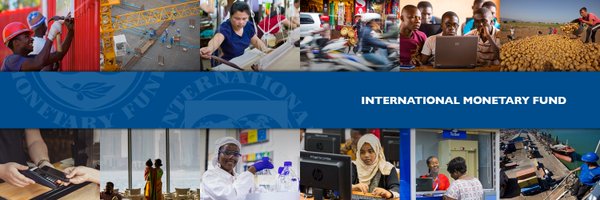 (AGENPARL) - Roma, 11 Ottobre 2022
(AGENPARL) - Roma, 11 Ottobre 2022(AGENPARL) – mar 11 ottobre 2022 [AM cover]
Dear Colleague, welcome to the October 11 briefing from the
2022 Annual Meetings
In the first of our daily briefings from the annual meetings, we spotlight Ugandan activist for climate justice Vanessa Nakate, the challenges poorer nations face accessing capital to overcome economic crises, food insecurity in sub-Saharan Africa, the Asia Pacific’s pandemic scarring, how corruption is fueling fragility, and much more.
“One of the horrible realities of the climate crisis is that people paying the price on the frontlines are not the ones who are responsible for it,” Vanessa Nakate, a Ugandan activist for climate justice, said on the first day of the IMF’s annual meetings in Washington.
Nakate called on policymakers at the annual meetings and in the run-up to COP27 to commit urgently to fight the climate crisis, including by ceasing support for new fossil-fuel related projects. Countries should be encouraged to invest in renewable energy, and international organizations should provide grants and not loans for this purpose.
Decision-makers should set up a loss and damage fund to help poorer countries in Africa and elsewhere address some of the problems stemming from climate change, Nakate said.
Nakate also discussed her history as a climate activist in the east African nation and IMF Managing Director Kristalina Georgieva opened the session.
—————————————————————
—————————————————————
From climate change to the cost of living, the world’s poorest countries are suffering the most from the multiple crises confronting the world economy. Yet capital that could lessen the pain is flowing primarily to richer nations.
IMF Managing Director Kristalina Georgieva and World Bank President David Malpass discussed how advanced economies are diverting capital from emerging market and developing economies by running larger fiscal deficits and buying only the bonds of advanced economies.
Georgieva said that public money alone could not fill the immense financing gap faced by the world’s poorer nations, but it could open a space for private money to build more resilient economies.
“I’m very excited about thinking differently about how we deploy public money.”
This could, she said, correct the situation where private finance is going primarily to the less risky parts of the world at a time when it is most needed in developing countries where the problems are most severe.
Georgieva and Malpass also discussed recession risks in the world’s three largest economies, inflation, interest rates, and much more in a one-on-one discussion.
—————————————————————
NUMBER OF THE DAY
The lives and livelihoods of 345 million people are in immediate danger from acute food insecurity.
MILLION
In the first Analytical Corner of the meetings, Sebastiaan Pompe of the IMF’s Legal Department presented new findings on fragility and corruption.
In part based on actual cases from Fund work, Pompe said that corruption is central to fragility as it affects the core functions of the state, such as the authority to control violence, capacity to deliver basic services, and legitimacy to secure popular consent. Corruption in state functions and sectors of fragile states is interlinked, and so cannot be tackled on an institution-by-institution, or even sector-by-sector basis, he added.
Pompe closed by saying that combating corruption calls for a broader cross-cutting approach aimed at changing behavioral patterns through structural adjustments and incentives, with criminalization as a supportive factor.
[Quote Nakete][spacer]
Successive shocks caused by the pandemic and Russia’s invasion of Ukraine have driven up food insecurity in sub-Sharan Africa by at least 30 percent to 123 million in 2022.
On top of this, the region faces a rising frequency and intensity of droughts, floods, and cyclones as well as higher temperatures and sea levels, all of which will worsen this number.
The IMF’s Mai Farid and John Spray told an Analytical Corner that three key areas could be most impactful in building resilience to climate change when it comes to food security in sub-Saharan Africa.
These include improving access to affordable food through social assistance, establishing greater access to finance through digitalization, and increasing regional trade integration to help promote stability of food prices.
—————————————————————
The Asia Pacific region may face more economic pain as IMF research shows significant long-term output losses due to lower investment, productivity, and employment, Fund economists Nour Tawk and Siddharth Kothari told an Analytical Corner.
A renewed push for structural reforms, however, could mitigate the scarring effects of the pandemic in the region. Policymakers should focus on tackling corporate debt, reducing education losses, and boosting digitalization. “It’s only with a bold, concerted push that these economies can return to growth and make sure that when future shocks strike, they will be in a better position to withstand that,” said Tawk.
TODAY’S EVENTS
9:00 AM – 9:45 AM ET
SPEAKERS:
Pierre-Olivier Gourinchas, Director, Research Department, IMF
Petya Koeva Brooks, Deputy Director, Research Department, IMF
Daniel Leigh, Division Chief, Research Department, IMF
—————————————————————
10:15 AM – 11:00 AM ET
SPEAKERS:
Tobias Adrian, Director, Monetary and Capital Markets Department, IMF
Fabio Natalucci, Deputy Director of the Monetary and Capital Markets Department, IMF
Ranjit Singh, Assistant Director in the Monetary and Capital Markets Department, IMF
—————————————————————
2:00 PM – 3:00 PM ET
SPEAKERS:
Gita Gopinath, First Deputy Managing Director, IMF
Anna Gelpern, Anne Fleming Research Professor, Georgetown Law
Lee Buchheit, Honorary Professor, University of Edinburgh Law School
MODERATOR:
Martin Wolf, Chief Economics Commentator, Financial Times
—————————————————————
3:30 PM – 4:30 PM ET
OPENING REMARKS:
Kenji Okamura, Deputy Managing Director, IMF
SPEAKERS:
Abebe Aemro Selassie, Director of the African Department, IMF
Dr. Situmbeko Musokotwane, Minister of Finance and National Planning for the Republic of Zambia
Justin Wolfers, Professor of Economics and of Public Policy, University of Michigan
Sarah Cumbers, Chair, The Evidence Quarter
Gilbert Houngbo, Director General, International Labour Organization
MODERATOR:
Stephanie Flanders, Senior Executive Editor for Economics and Government, Bloomberg News
TODAY’S MEDIA PARTNERS
—————————————————————
Read a selection of Annual Meetings related newsfrom the world’s leading media outlets.
Give us your feedback!
[AMs footer image]
First-time reader? Sign up here

